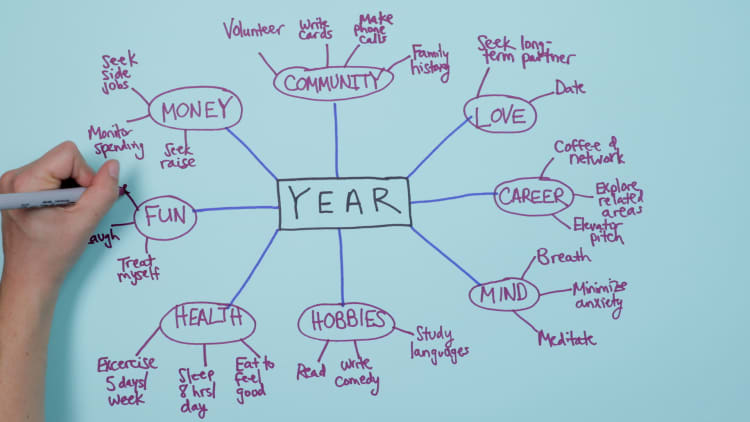"Networking as we know it is dead," says Scott Gerber, the CEO of The Community Company and author of "Super Connector: Stop Networking and Start Building Business Relationships That Matter."
These days, people attend events to meet others just to collect business cards and make insignificant small talk that rarely turns into a tangible, mutually beneficial relationship, Gerber tells CNBC Make It.
However, networking wasn't always this way. In fact, Gerber explains networking used to be a "way in which you could better meet and build relationships with people."
But with the rise of social networks that are based on flimsy relationships and an onslaught of self-proclaimed gurus, ninjas and other "nonsense" marketing titles, he says people have "bastardized" networking.
To actually build strong relationships that can boost your personal and professional goals, Gerber says you should be a "super connector" instead of a "networker."
He explains the key difference between the two: "Networkers are people who are very short-term thinkers, very transactional oriented. They use relationships for their personal gain or personal strategies."

A super connector, meanwhile, is someone who "fundamentally realizes that your social capital is the most important currency you'll ever have," says Gerber. They are empathetic, emotionally connected, intelligent, curious and have a love for people.
"[Super connectors] are people who think more long-term in terms of value creation [and] in terms of being more conventionally generous towards others," he says. They also understand that if they take the time to build deep relationships now, they will benefit from them later on.
Unlike self-serving "networkers," Gerber says the "super connector" title is one that is bestowed upon you. This title is based on how you're introduced by others and how you're known to your colleagues.
Another major difference between "networkers" and "super connectors" is their level of authenticity. While networkers come off as inauthentic when forming relationships, connectors are genuine in establishing close bonds with people.
"I don't know anyone that likes being networked to," the authors write. "You get instantly that feeling of you need a shower afterwards because someone is trying to tell you all about something they're trying to sell you on, handing you a business card and looking over your shoulder at the next person they should be meeting."

To truly get people to buy into your ideas and to leverage your relationships, Gerber suggests that you think like a connector. He adds that there are three kinds:
- Thinkers: These connectors are curious and have a hundred ideas a minute. However, says Gerber, they aren't always the best at executing them.
- Enablers: These connectors assemble people together and share ideas with them. They love to introduce people to one another.
- Connection executors: These are the accomplishers. They take other people's ideas and make them happen.
Gerber explains that there's no best type of connector. However, determining your category requires self-awareness.
"It's the self-awareness to assess yourself in an honest way," he says. "To make sure that you're surrounding yourself with an inner circle of those that compliment [and who will help] you to exponentially increase the connector abilities that will help others and help yourself."
Like this story? Like CNBC Make It on Facebook.
Don't miss: This study identified the 5 people that make up a 'work family'—which one are you?



